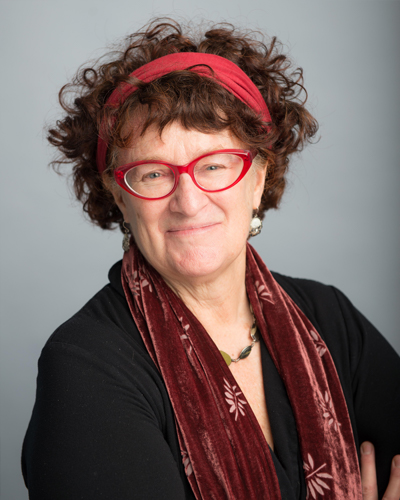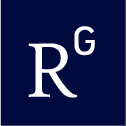Research Interests
- Art Education Research
- Curriculum Studies
- Environmental Education
- Mathematics
- Media
- Semiotics
- Text Studies
- Pedagogy
- Mathematics and gesture
- Embodied learning
- Genre theory
- Mathematics and the arts
- Garden-based learning
- Performance theory
- Mathematics and language
- History of mathematics
Education
Simon Fraser University, 2000, PhD, Curriculum (Mathematics Education)
Simon Fraser University, 1992, Teacher Certification
Univ of Durham, England, 1990, MA, Applied Linguistics
Univ of Toronto, 1977, Hon BA, Chinese Lang
Biography
Susan Gerofsky brings experience in a number of fields to bear in an innovative and interdisciplinary approach to mathematics education and environmental education and curriculum theory. She holds degrees in languages and linguistics as well as mathematics education, and worked for twelve years in film production, eight years in adult education (including workplace and labour education), and nine years as a high school teacher with the Vancouver School Board. Dr. Gerofsky has been involved in interdisciplinary research and teaching involving embodied, arts-based mathematics education, garden-based environmental education, applied linguistics, and film.
Dr. Gerofsky has studied and taught in England, Brazil, Italy, Germany and Cuba. She speaks several languages, and is an active musician with Tiddley Cove Morris Dancers, Sospiro Misterioso, Reed Isle, The Mandelbrot Set, and formerly with Orkestar Slivovica, Tootalute, and Grist to the Mill ceilidh band (playing squeezeboxes, pennywhistle and baritone horn). She serves on the board of EartHand Gleaners Eco-artists.
Publications
Selected Publications
Books
Gerofsky, S. (Ed.) (2018). Contemporary environmental and mathematics education modelling using new geometric approaches: Geometries of liberation. New York: Palgrave Macmillan. ISBN 978-3-319-72522-2
Gerofsky, S. (2004). A man left Albuquerque heading east: Word problems as genre in mathematics education. Series Editors: J. Kincheloe & S. Steinberg: eXtreme Teaching: Rigorous Texts for Troubled Times series. New York: Peter Lang. ISBN-13: 978-0820458236
Articles
Gerofsky, S. & Ostertag, J. (2018). Dancing teachers into being with a garden: or How to swing or parkour the strict grid of schooling. Australian Journal of Environmental Education 34(2), 172-188.
Gerofsky, S. (2018). Approaching the history of mathematics via the performing arts: Kepler: A ‘Renaissance Folk Play’ in verse. The Mathematical Intelligencer 41(1), 57-66. https://doi.org/10.1007/s00283-018-9818-2
Hauk, M., Williams, D., Bluehorse Skelton, J., Kelley, S., Gerofsky, S. & Lagerwey, C. (2018). Learning gardens for all: Diversity and inclusion. International Journal of Sustainability in Economic, Social & Cultural Context, 13(4), 40-63.
Gerofsky, S. (2017). Embodied, arts-infused, historico-cultural mathematics (out-of-doors) as a counter-narrative to hegemonic scientism and mathematisation. Quaderni di Ricerca in Didattica/Mathematics (QRDM) 27(2), 183-187.
Appelbaum, P. & Gerofsky, S. (2013). Performing alterglobalization in mathematics education. Quaderni di Ricerca in Didattica (Mathematics)23(1), 23-48.
Gerofsky. S. (2012). Digital mathematical performances: Creating a liminal space for participation. Quaderni di Ricerca in Didattica (Mathematics) 22(1), 242-248.
Gerofsky, S. (2011). Ancestral genres of mathematical graphs. For the Learning of Mathematics 31(1), 14-19.
Gerofsky, S. (2010). Mathematical learning and gesture: Character viewpoint and observer viewpoint in students’ gestured graphs of functions. Gesture 10(2/3), 321-343.
Gerofsky, S. (2010). The impossibility of ‘real-life’ word problems (according to Bakhtin, Lacan, Zizek and Baudrillard). Discourse 31(1), 61-74.
Gerofsky, S. & Goble, J. S. (2007). A conversation on embodiment at the heart of abstraction in mathematics education and music education. Journal of the Canadian Association for Curriculum Studies 5(1), 49-68.
Gerofsky, S. (2007). ‘Because you can make things with it’: A rationale for a project to teach mathematics as a multimodal design tool in secondary education. Journal of Teaching and Learning 5(1), 23-32.
Gerofsky, S. (2006). Simulation, reality and mathematical word problems. For The Learning of Mathematics 26(2), 30-32.
Gerofsky, S. (1999). Genre analysis as a way of understanding pedagogy in mathematics education. For The Learning of Mathematics 19(3), 36-46.
Gerofsky, S. & Schroeder, C. (1998). Beyond the span of my limbs: Gesture, number and infinity. JCT: Journal of Curriculum Theorizing 14(3), 39-48.
Gerofsky, S. & Thomas, R. (1997). An exchange about word problems. For The Learning of Mathematics 17(2), 21-23.
Gerofsky, S. (1997). “Why does a letter always arrive at its destination?”: Opening up living space between problem and solutions in math education. Chreods 12, 32-36.
Gerofsky, S. (1996). A linguistic and narrative view of word problems in mathematics education. For The Learning of Mathematics 16(2), 36-45.
Chapters
Ostertag, J., Gerofsky, S. & Scott, S. (in press). Learning to teach environmental education by gardening the margins of the academy. In Annette Gough & Noel Gough (Eds.), Environmental and sustainability education in preservice teacher education. New York: Springer. (30 pp.) (Republished paper from CATE 2017).
Gerofsky, S. (2018). Always an abundance: Interstitial/ liminal space, time and resources that are invisible to the grid. In S. Gerofsky (Ed.), Contemporary environmental and mathematics education modelling using new geometric approaches: Geometries of liberation. New York: Palgrave Macmillan (pp.47-66). ISBN 978-3-319-72522-2
Gerofsky, S. (2017). Mathematics and movement. In Jao,L. & Radakovic, N. (Eds.), Transdisciplinarity in mathematics education: Blurring disciplinary boundaries.. New York: Springer (pp. 239-254). ISBN 978-3-319-63623-8
Gerofsky, S. (2017). Ecopoetry walks (and sings). In Sameshima, P., Fidyk, A., James, K. & Leggo, C. (Eds.), Poetic inquiry: Enchantment of place. Wilmington, DE: Vernon Press (pp. 315-322). ISBN 978-1622731237
Ostertag, J., Gerofsky, S. & Scott. S. (2017). Learning to teach environmental education by gardening the margins of the academy. In D. Karrow, M. DiGiuseppe, P. Elliot, Y. Gwekwerere, & H. Inwood (Eds.), Canadian perspectives on initial teacher environmental education praxis. Ontario, Canada: Canadian Association for Teacher Education (CATE) (pp. 186-216). ISBN 978-0-9947451-5-6
Gerofsky, S. (2016). Approaches to embodied learning in mathematics. In English, L.D. & Kishner, D. (Eds.), Handbook of International Research in Mathematics Education, Third Edition. New York: Routledge, pp. 60-97. ISBN 9780415832038
Gerofsky, S. (2015). Digital mathematical performances: Creating a liminal space for participation. In Gellert, U., Rodriguez, J. G., Hahn, C. & Kafoussi, S. (Eds.), Educational paths to mathematics: A CIEAEM sourcebook. Berlin: Springer (pp. 205-217). ISBN 978-3-319-15410-7
Gerofsky, S. (2011). Seeing the graph vs. being the graph: Gesture, engagement and awareness in school mathematics. In Stam, G. & Ishino, M. (Eds.), Integrating gestures: The interdisciplinary nature of gesture. Amsterdam: John Benjamins (pp. 245-257). ISBN 9789027228451
Gerofsky, S. (2009). Genre, simulacra, impossible exchange, and the Real: How postmodern theory problematizes word problems. In Verschaffel, L., Greer, B., Van Dooren, M. & Mukhopadhyay, S. (Eds.), Words and worlds: Modelling verbal descriptions of situations. Rotterdam: Sense Publishers (pp. 21-38). ISBN 978-9087909369
Gerofsky, S. (2008). Battleground schools: Mathematics education. In Mathison, S. and Ross, W. (Eds.), Battleground schools. Westport, CT.: Greenwood Press (pp. 391-400). ISBN 978-0313339417
Gerofsky, S. (2007). Beyond the “qualitative/quantitative” dichotomy: Pragmatics, genre studies and other linguistic methodologies in education research. In J.L. Kincheloe & R.A. Horn (Eds.), The Praeger Handbook of Education and Psychology, Vol. 3 (pp. 497-503). ISBN 978-0313331220
Gerofsky, S. (2001). Genre analysis as a way of understanding pedagogy in mathematics education. In Applebaum, P., Morris, M. & Weaver, J. (Eds.), (Post) Modern Science (Education).New York: Peter Lang (pp. 147-177). ISBN 978-0-8204-4910-4
Alexander, K., Gerofsky, S. & Wideen, M. (1999). Toward an ecology of change. In Wideen, M. & Lemma, P. (Eds.), Ground level reform in teacher education: Changing schools of education. Calgary, AB: Detselig (pp. 215-231). ISBN 978-1550591910
Gerofsky, S. (1995). Research on the Internet: Some that new technologies change the nature of research and writing. In G. Snively and A. MacKinnon (Eds.), Thinking globally about mathematics and science education. Vancouver, BC: Centre for the Study of Curriculum and Instruction, UBC (pp. 53 – 175). ISBN 9780888653963
More Publications
Artistic works
Short Films:
Gerofsky, S. (2019). Witches of Agnesi. Filmed version of July 2019 math history original musical play production, INSEA Art Education conference, UBC. Film producer, writer, music & lyrics.
Gerofsky, S. (2019). Dancing Euclidean proofs. Mathematics arts film: producer/ director. Screened in refereed mathematics/ art short film festival, Bridges Math and Art, Linz, Austria. <https://vimeo.com/330107264>
Gerofsky, S. (2018). Farmer Jim and the kids: a story of intergenerational learning. Documentary film on garden-based learning: producer. <https://vimeo.com/313683393>
Gerofsky, S. (2018). Dancing braid into being: Exploring mathematics through dance. Mathematics arts film: producer. Screened in refereed mathematics/ art short film festival, Bridges Math and Art, Stockholm. <http://gallery.bridgesmathart.org/exhibitions/2018-bridges-conference-short-film-festival/susan-gerofsky>
Gerofsky, S. (2018). Learning mathematics through the arts at Burnaby Central: The Wurzelschnecke and DNA/ twine helices. Mathematics education arts film produced for a 90-student workshop at Burnaby Central Secondary School. <https://drive.google.com/file/d/1dmEPcSFSYnvaTOL35-IkfH7QZp-PNDjv/view?usp=sharing>
Gerofsky, S. (2017). New math teachers riff on Kandinsky in Binary. Mathematics arts film: producer. Screened in refereed mathematics/ art short film festival, Bridges Math and Art, University of Waterloo, ON, July 2017. <http://gallery.bridgesmathart.org/exhibitions/2017-bridges-conference-short-film-festival/susan-gerofsky>
Gerofsky, S. (2016). The art and geometry of rope-making and yarn plying. Mathematics arts film: producer. Screened in refereed mathematics/ art short film festival, Bridges Math and Art, Jyväskylä, Finland. <http://gallery.bridgesmathart.org/exhibitions/2016-bridges-conference-short-movie-festival/susan-gerofsky>
Gerofsky, S. (2016). Introducing the Cultivating Learning Network. Garden-based learning film: co-producer. <https://vimeo.com/207198339>
Norris, J., Gerofsky, S. & Snowber, C. (2014). Arts-based embodied research film, My dinner with Celeste and Susan: Reviving ‘Beyond the Span of My Limbs’. <http://youtu.be/8tJuBxp6VgU>
Gerofsky, S. (2013). Sarah Chase: Dancing combinatorics, phases and tides. Mathematics arts film: producer. Screened in refereed mathematics/ art short film festival, Bridges Math and Art, Enschede, NL. <http://gallery.bridgesmathart.org/exhibitions/2013-bridges-conference-short-movie-festival/susan-gerofsky>
Gerofsky S. (2013). Six short films on UBC Orchard Garden Alumni. https://vimeo.com/78563019, https://vimeo.com/78591711, https://vimeo.com/78591712, https://vimeo.com/78563020,https://vimeo.com/78602541, <https://vimeo.com/78701357>
Gerofsky, S. (2009). Steel phoenix: The geometry of longsword locks. Mathematics arts film: producer. Screened in refereed mathematics/ art short film festival, Bridges Math and Art, Banff, AB, July 2009. <https://vimeo.com/66303546>
Mathematics history plays:
Gerofsky, S. (2018/ 2019). Witches of Agnesi. Wrote, produced and performed an original play with a cast of 12 actors, a four-member band and three original songs on three historical women mathematicians (Agnesi, Kovalevskaya and Noether). Bridges Math & Art 2018, Stockholm, Sweden and INSEA 2019, UBC.
Gerofsky, S. (2017). Kepler: A Renaissance folk play in verse. Wrote, produced and performed music in an original play on mathematician and astronomer Johannes Kepler. Published in The Mathematical Intelligencer. Perfomed at Bridges Math & Art 2017, University of Waterloo, ON and at SFU, Burnaby, BC.
Music composition:
Gerofsky, S. (2018) Bach 333rd Birthday Fibonacci Canon. Classical composition in Baroque style based on the first 33 numbers in the Fibonacci sequence. Winner, Audience Choice Prize in the international Bach 333 Canon competition.
Gerofsky, S. (2015 -2018). Composed, wrote lyrics and performed 10 songs on curricular themes. Most recently, wrote and performed a song about the work of curricular theorist Maxine Greene, Greene thoughts in a green shade, at the Maxine Greene High School for the Arts and Imagination, Lincoln Centre, NYC as part of a site-specific performance at AERA 2018.
Media:
Gerofsky, S. (June 2019). CTV Morning Television interview: “The summer slide in math?” <https://bc.ctvnews.ca/video?clipId=1716313>
Gerofsky, S. (Oct 2018). Featured interview on ‘Embodied mathematics’ on Capilano Radio One on one. Interviewer Will Cournoyer Clement. < https://soundcloud.com/capilanoradio/one-on-one-susan-gerofsky >
CBC Radio One. (June 2015).Interviewed by Stephen Quinn on CBC Radio 1 On the Coast phone-in show on controversies in mathematics education. (I was also interviewed by the Ubyssey, and invited to speak on CBC Radio’s The 180 on the same topic.)
Gerofsky. S. (August, 2007). Video interview: Digital math performance. (Interviewer: Danielle Hoogland). Available at: http://www.edu.uwo.ca/dmp/gerofsky/index.html
Smith, N. (Feb. 27 2007). Boy trouble? (Interviewed for article on boys’ and girls’ school achievement). The Tyee(accessible at http://thetyee.ca/Views/Teacherdiaries/2007/02/27/BoyTrouble/)
CBC Radio One. (March 2007). Live radio interview and phone-in gueston the topic of math anxiety. BC Almanac. Producer Renee Filippone; Host Karen Gross.
Research Projects
Hornby Island of Math and Art: New research project working in close partnership with a remote rural community to reframe mathematics and reclaim a positive, generative relationship with math via intergenerational, whole-community public mathematical art-making.
Graphs & Gestures: Funded research since 2006 exploring embodied, multi sensory mathematics learning through gesture, movement and the arts, with learners identified as gifted, typical, reluctant, dyslexic, with visual impairment and others.
The UBC Orchard Garden & Cultivating Learning Network: Funded cross-faculty research and pedagogy since 2006, co-establishing and co-organizing a student-led campus gardens where new teachers experiment with teaching and learning across the curriculum outdoors, with garden as co-teacher.
School ground design PLAYbook: Transforming Vancouver’s school grounds: Award-winning collaborative project with Chris Fox (Landscape Architecture), Mariana Brussoni (Medicine), Julia Ostertag (Environmental & Arts Education) and others.
Digital Mathematical Performance: 3-yr. funded project exploring students’ use of gesture, movement, language, music, drama, sculpture and film to express their mathematical questions school math learning.
Courses Taught
EDCP 342A Curriculum and instruction in secondary mathematics
EDCP 442 History of mathematics for teachers
EDUC 450B Inquiry 1: Math and physics cohort
EDUC 452 Inquiry 3
EDCP 550 Mathematics education: Origins and issues
EDCP 551 Mathematics education: Current issues — Math, language and the body
EDCP 553 Math education: Beyond the early years
ECED 565A Garden-based pedagogies in early childhood education
CCFI572A Advanced seminar in cross-faculty inquiry in education: Theories of media, technology, culture and learning
CCFI502 Theorizing knowing in education


